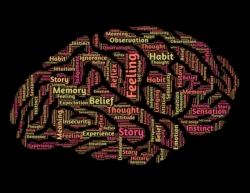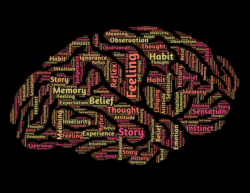“Everything can be taken from a man but one thing: the last of the human freedoms — to choose one’s attitude in any given set of circumstances, to choose one’s own way.” – Victor Frankl, Man’s Search for Meaning

A while back, I received a call from someone who was sure her accent was the reason people never listened to her and kept cutting her off. She decided to come in for a pronunciation assessment which generally takes about an hour. Once she sat down, she started telling me her story, talking non-stop for 45 minutes. It was hard to interrupt her so, in order to get on with the assessment, I started to be stronger in my interruption. Then she stopped speaking completely.
“What happened?” I said.
“Nothing.”
“Yes, something happened. What is it?”
“No, nothing.”
“Yes, you’ve changed. What happened?”
“You people are always cutting us off!”
What does this situation and this dialogue show about the potential client? Do you think she will be a successful learner?
Change is difficult when we are stuck in blame
In my opinion, this woman not only had little self awareness, but more importantly, she pitted herself against “others,” looking outside of herself to lay the blame. Low self-awareness is common and perhaps we could have worked with that. But the us/them mentality and consequent blame indicated someone who was not open to learning.
Blaming others means that it is not our fault which, in turn, indicates a perspective that we have no power to change. Of course, things happen to us which can be hurtful and destructive. But until we move past blaming, we are essentially giving up our power; we are not taking control. We are taking the perspective of being at “effect” – meaning our situation was caused by something outside us and we have no control. If we can shift that perspective and choose to be at “cause,” we can take control and influence the outcome of our lives.
Practicing forgiveness, a value taught by many religions, has the effect of allowing us to let go of blame. For me, this is the true value of forgiveness, to stop blaming and start taking responsibility.
Change and growth are uncomfortable
Learning new communication skills – and really learning anything new – imply change, and change produces discomfort. When we start to think or act differently, the body creates different chemicals; we feel different, not ourselves, and crave to go back to what we know. But as we repeat the same behaviour, it becomes familiar. If we learn to become more comfortable with discomfort, we will learn more easily and more quickly.
Our beliefs about learning are also important. People with a fixed mindset tend to believe that intelligence and talent are innate. They worry about making mistakes and give up sooner on difficult tasks. I often hear, “I think my tongue muscles just can’t do that” or “that will take so much practice to change.” In contrast, people with a growth mindset believe change comes from effort – keeping at it and practicing. They view mistakes and challenges as experiences that help them learn and grow.
Creativity allows us to integrate new skills
Finally, applying creativity to our learning allows us to more easily modify our behaviour, evolve and change. Thinking outside the box allows us to respond to our lives, to apply what we are learning in our reality. While, for example, pronunciation and grammar handouts are useful models to practice structures, movements and responses, until we move off the paper and creatively apply what we are learning, using life experience as the model, we are not integrating the new skills.
Taking responsibility for our learning takes effort. It can be uncomfortable and tiring. But the exhilaration of experiencing new skills becoming automatic is well worth the effort.

